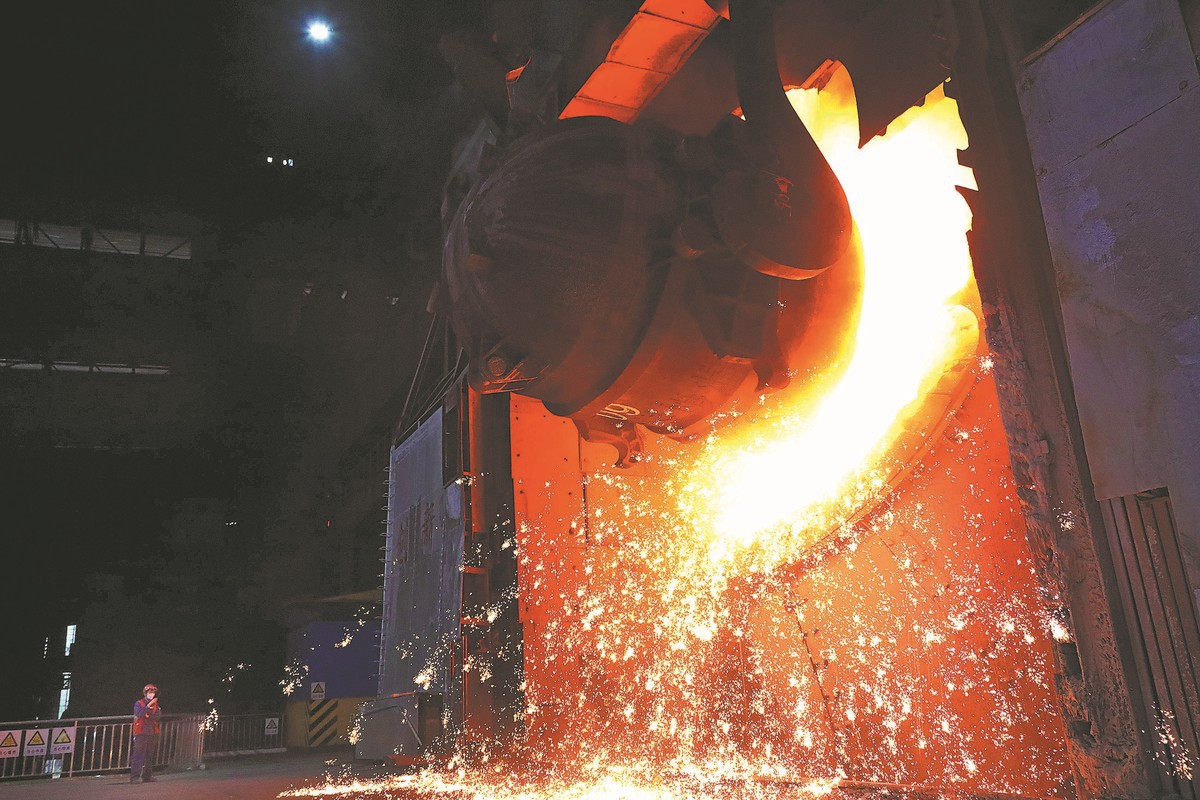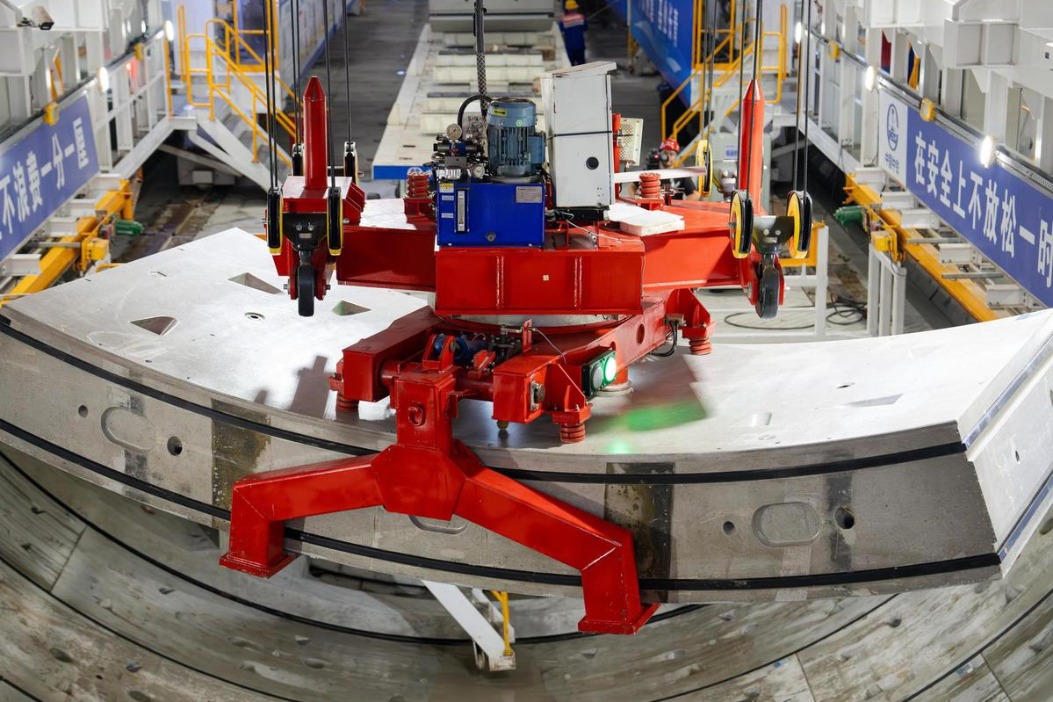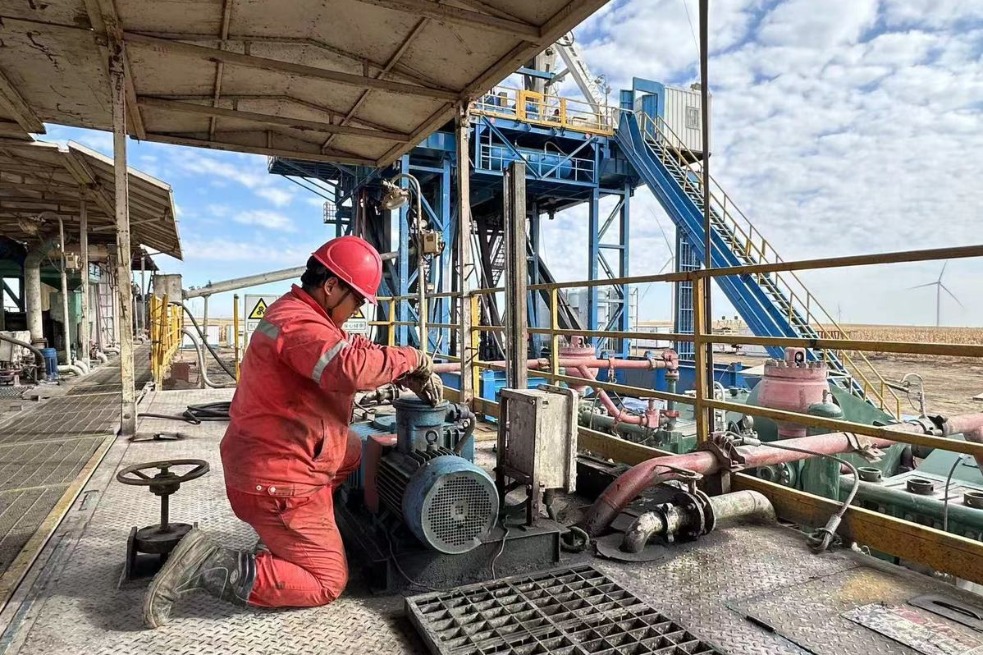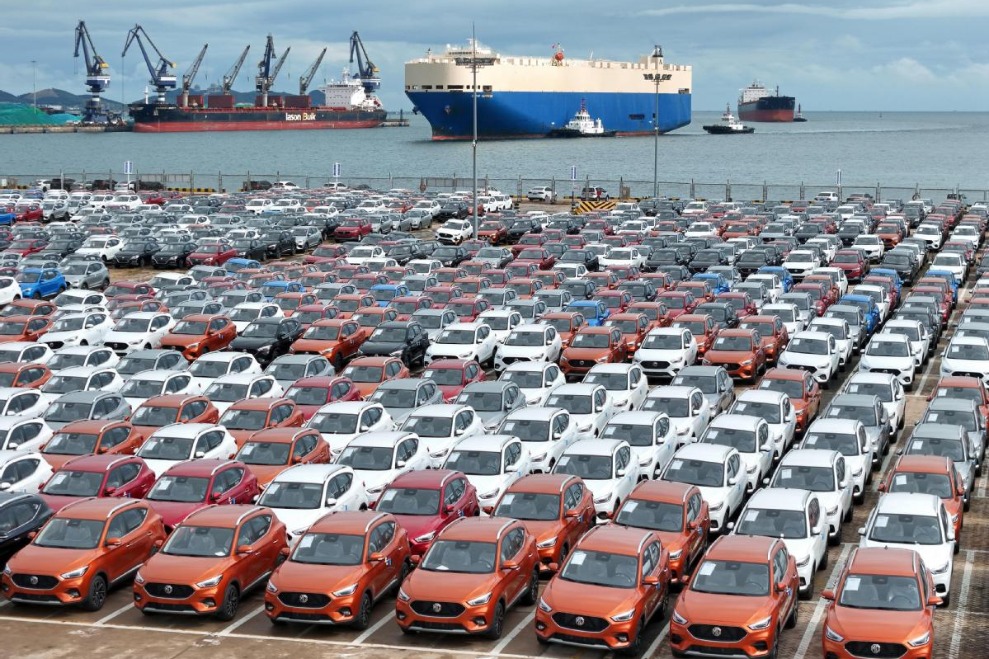SOE to speed up nation's recycle drive
New enterprise in Tianjin to utilize 260m-ton scrap steel, iron annually


As a centrally administered State-owned enterprise that was recently established to boost the nation's circular economy, China Resources Recycling Group Co Ltd will build itself into a key player in the field, ramping up solutions for warehousing, processing, distribution and trade-in programs, so as to take a lead in establishing market standards, said the company's top executive.
The SOE announced its establishment in Tianjin on Friday with a registered capital of 10 billion yuan ($1.4 billion).
The State-owned Assets Supervision and Administration Commission of the State Council, China Baowu Steel Group Corp, China Petroleum and Chemical Corp and China Resources (Holdings) Co each hold 20 percent shares in the new SOE, while Aluminum Corp of China and China Minmetals Corp each hold 10 percent.
"The group is dedicated to embracing the principles of a circular economy — reduce, reuse, recycle — with the aim of improving resource efficiency through meticulous waste management, effective recycling and efficient utilization," said Liu Yu, Party chief and chairman of China Resources Recycling.
"We will establish a comprehensive nationwide platform for the utilization of renewable resources, and ramp up efforts to continue expanding the range of recycled materials."
The group will focus on the recycling and utilization of major recyclable resources, such as scrap steel and scrap nonferrous metals. It is anticipated that annual scrap steel and iron utilization will reach 260 million metric tons.
Additionally, the group will strive to enhance the network for recycling old products and equipment, assist businesses in establishing reverse logistics systems for recycling old products, and promote the efficient use of decommissioned wind power, solar power and power batteries.
Liu said: "We are ready to seize the abundant opportunities in advancing the circular economy. By leveraging the integration of State-owned enterprise resources as a catalyst, we are progressively promoting the integration of relevant domestic industries."
Yang Liu, director of the Tianjin investment promotion bureau, said: "Tianjin has significant advantages in promoting the circular economy due to its industrial foundation. Ziya Circular Economy Park in Jinghai district is the nation's first national economic and development zone in this sector."
Since 2008, Jinghai has forged partnerships with Kyushu, Japan on circular economy, incorporating leading Japanese technologies and equipment in scrap car dismantling; importing its technologies to establish production lines for refrigerator crushing and plastic crushing; and launching a pilot project for kitchen waste recycling.
"The region boasts a complete industrial line for waste metals, car dismantling, electronic devices and batteries with cutting-edge technologies," Yang said.
Wang Guoliang, director of the administrative committee of China-Singapore Tianjin Eco-City, where the new SOE is located, said: "The eco-city will seek to play a crucial role in promoting green development as it has been designated as a national green development model in the country. It will support the company's technological research, standard setting, industrial fruition transfer and application processes."
Wang Junfeng, director of the circular economy and low carbon research center, Nankai University, said: "The company's establishment in Tianjin is not unexpected. The city has been at the forefront of circular economy applications and international collaborations, further driving synergistic development not only for the Beijing-Tianjin-Hebei region, but also for the entire country."




































